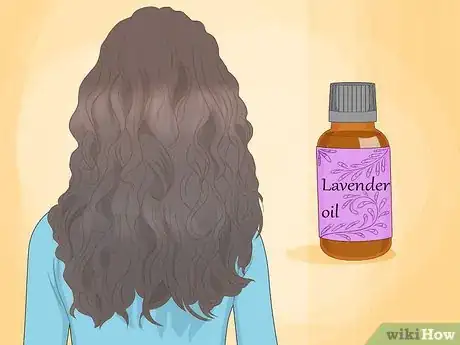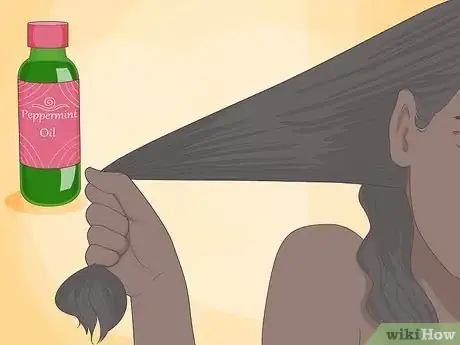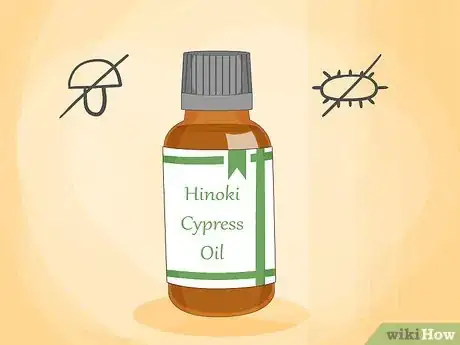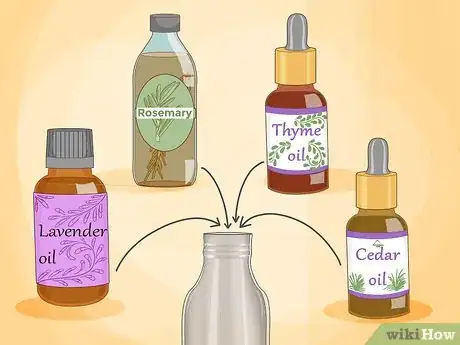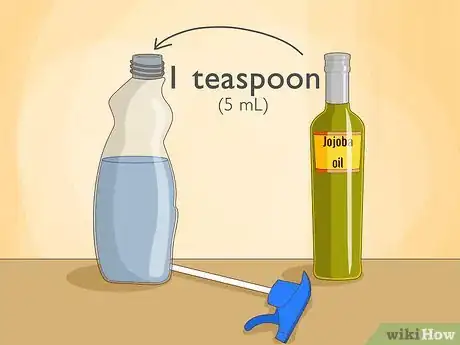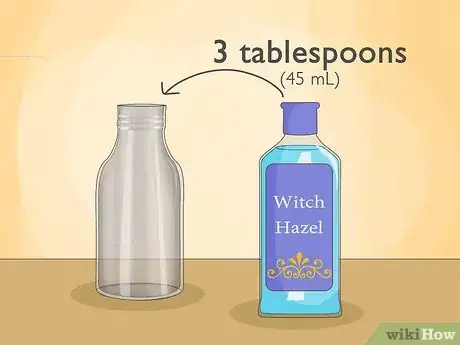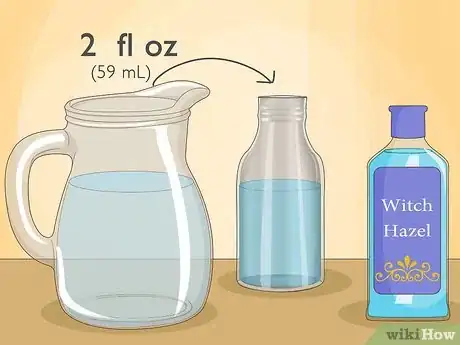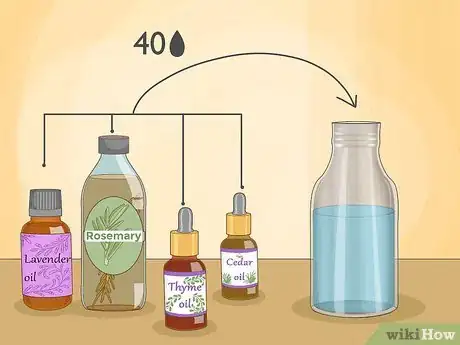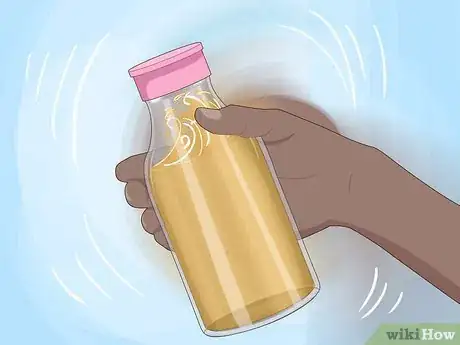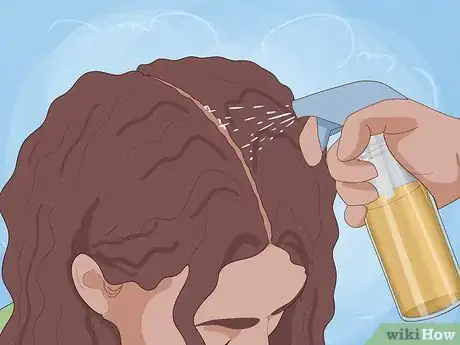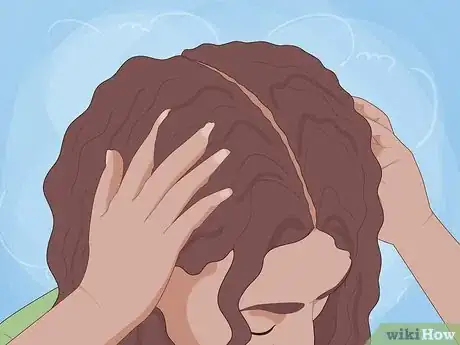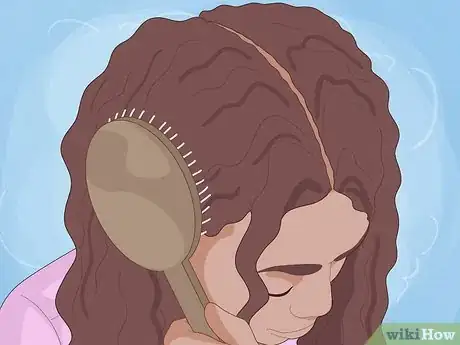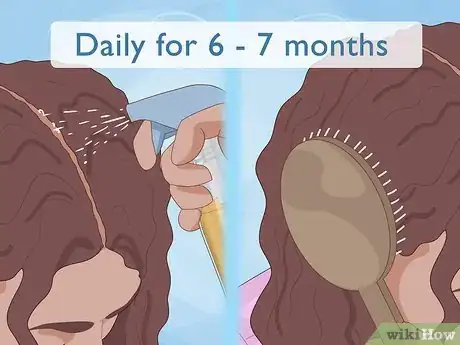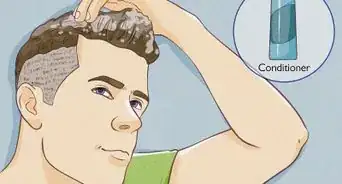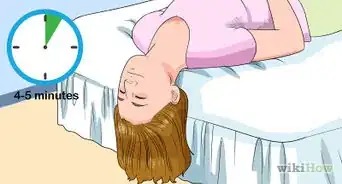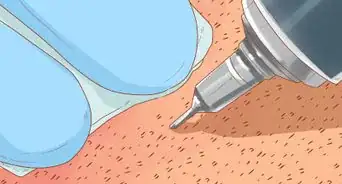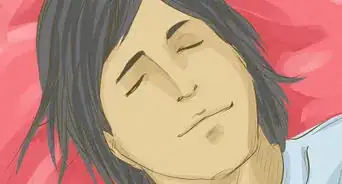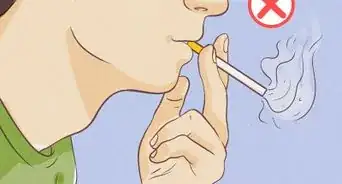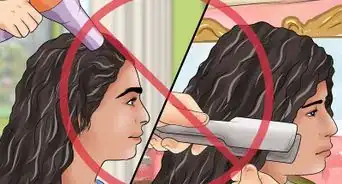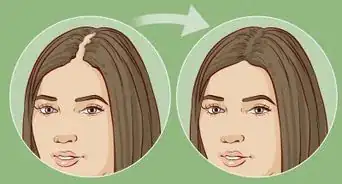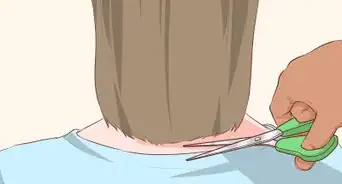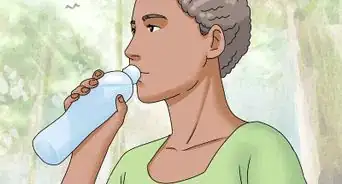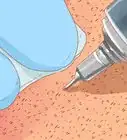This article was co-authored by Renee Hughes. Renee Hughes is a Certified Professional Aromatherapist and the CEO of The Aromaspecialists. With more than seven years of experience, she specializes in teaching others how to use aromatherapy and become certified aromatherapists. Renee received her training from The New Eden School of Natural Health and Herbal Studies. She is also a Level 2 National Association for Holistic Aromatherapy (NAHA) Certified Professional Aromatherapist and a NAHA Approved School Educator.
There are 12 references cited in this article, which can be found at the bottom of the page.
wikiHow marks an article as reader-approved once it receives enough positive feedback. In this case, 90% of readers who voted found the article helpful, earning it our reader-approved status.
This article has been viewed 172,174 times.
Hair loss is common, but it can be quite frustrating. If you’ve noticed a decrease in the thickness of your hair, you might benefit from using essential oils. Some studies have indicated that massaging essential oils into your scalp daily may help to promote hair growth. However, it’s important to mix essential oils with a carrier oil for safety reasons and to get the best results from this treatment. Make your own essential oil hair tonic and use it daily for best results.
Steps
Choosing Oils
-
1Opt for lavender oil for thicker, fuller hair and anti-inflammatory effects. Lavender oil has been shown to promote hair growth by thickening strands, deepening roots, increasing the number of strands, and it may also help to reduce inflammation in your scalp by reducing the number of mast cells. This could help to reduce future hair loss. It also has a soothing scent, so this might be a good option for something to help you relax, such as before going to bed at night or after a busy day at work.[1]
- Lavender is widely available in grocery stores, drug stores, and online.
Tip: When choosing essential oils to buy, check the label to ensure that you’re getting a 100% essential oil that has not been mixed with any other substances.[2]
-
2Go with peppermint oil for thicker, stronger hair with more strands. Peppermint oil can help to promote hair growth by increasing the thickness, number, and strength of your strands. Many people also find the scent of peppermint invigorating or refreshing. This might be a good option if you plan to use your hair tonic after your morning shower.[3]
- Peppermint essential oil is easy to find in grocery stores, drug stores, and online.
Advertisement -
3Try Hinoki cypress oil for antibacterial and antifungal properties. Hinoki cypress (Chamaecyparis obtusa) helps to promote hair growth, but the exact mechanism is unclear. However, it does have antibacterial and antifungal properties, so this could be a good option if you are prone to skin infections. You could also mix this oil in with lavender or peppermint to boost their effects.[4]
- This oil may be more difficult to find. Try looking in the essential oil section of your grocery or drug store, but you may need to purchase the oil online.
-
4Combine rosemary, lavender, cedar, and thyme for a time-honored mixture. This combination of essential oils has long been recommended to help promote hair growth. Studies have shown that using these oils is more effective than using a carrier oil alone. The combination of these oils will result in a more complex scent with an herbal or woodsy character.[5]
- Look for these essential oils in a grocery store, drug store, or online.
- Rosemary oil, in particular, is great for hair growth.
Creating a Hair Tonic
-
1
-
2Pour in 3 tablespoons (45 mL) of alcohol-free witch hazel. Use a measuring spoon to ensure that you get the right amount. Alcohol has a drying effect on the skin and hair, so it’s important to use witch hazel that is alcohol-free.
- Witch hazel is optional. If you don't want to use it, replace it with more of your carrier oil. Studies have also looked at the effects of combining essential oils with a carrier oil alone, such as jojoba or grapeseed oil.[10]
Tip: Place a funnel into the opening of the bottle to reduce spillage as you add the ingredients.
-
3Fill the bottle with about 2 fl oz (59 mL) of distilled water. After adding the witch hazel (if using), pour in enough water to nearly fill the bottle. This will be about 2 fl oz (59 mL) if you’re using a 4 fl oz (120 mL) bottle. However, if you’re using a larger bottle, measure out 2 fl oz (59 mL) of distilled water and then add it to the bottle.
- You can also use boiled and cooled water instead of distilled water. Bring 2 fl oz (59 mL) of water to a boil in a small pan or microwaveable container, let it cool to room temperature, and then add it to the bottle.
-
4Add a total of 40 drops of your essential oils. If you're only using 1 type of essential oil, use 40 drops of that oil. However, if you're using a blend of 4 oils, add 10 drops of each oil for a total of 40. Count the drops for each of the oils you add to get the correct amount. Don't use more than 40 drops or your solution may be too concentrated.[11]
- An ideal percentage for massage solutions is no more than 1% essential oil, or 3 drops per 5 mL (0.18 imp fl oz; 0.17 fl oz) of fluid.
- Essential oil bottles usually have stoppers that release 1 drop at a time, so you can count the number of drops that go into the bottle.
-
5Close the bottle and shake well before using. Screw the spray bottle top onto the bottle tightly. Then, shake the bottle to combine all of the ingredients. Shake the bottle each time you use the hair tonic to ensure that all of the ingredients are well combined.[12]
Using the Oil Mixture
-
1Spritz the hair tonic all over your scalp after cleansing your hair. This hair tonic works best when your hair is wet, so use it right after you wash your hair. Spritz the tonic all over your scalp, but you may want to spray a little extra on any areas where the hair is thinner.[13]
- If you don’t wash your hair every day, wet it in the shower or spritz it with a spray bottle of plain water before you spray on the tonic.
-
2Massage the oil into your scalp using your fingertips. Press your fingertips against your scalp and rub your scalp all over using circular motions. Continue to massage your scalp in this way for about 3 to 5 minutes.[14]
Tip: The tonic contains very little oil, so it is unlikely to leave your hair looking greasy. However, you may rinse your hair with warm water if you want to remove the excess oil after the massage.
-
3Comb through your hair to get the tonic all over the strands as well. After you finish massaging your scalp, use a wide-toothed comb to comb your hair. This will help to distribute the excess tonic to the ends of your strands.[15]
- You may also use a brush if you prefer.
-
4Repeat the treatment daily and check your hair growth in 3 months. If your hair responds to this treatment, you should notice a difference in about 3 months. However, you may notice even more of a difference in about 6-7 months. Continue to use the tonic and massage your scalp daily for as long as you like.[16]
Warnings
- Never apply essential oils directly to your scalp without mixing them with a carrier oil and other ingredients first. Applying the oil directly to your scalp may result in irritation.[17]⧼thumbs_response⧽
- If you're going to use essential oils on a daily basis, do it on a 1% blend in a nice dilution with a carrier oil.⧼thumbs_response⧽
Things You’ll Need
- Essential oils of your choice, such as lavender, peppermint, Hinoki cypress, rosemary, cedar, and thyme
- Carrier oil, such as jojoba, grapeseed, hemp, almond, apricot kernel, avocado, or vegetable oil
- Alcohol-free witch hazel
- Distilled water
- 4 fl oz (120 mL) spray bottle
- Funnel (optional)
References
- ↑ https://www.ncbi.nlm.nih.gov/pmc/articles/PMC4843973/
- ↑ https://www.takingcharge.csh.umn.edu/how-do-i-determine-quality-essential-oils
- ↑ https://www.ncbi.nlm.nih.gov/pmc/articles/PMC4289931/
- ↑ https://www.ncbi.nlm.nih.gov/pubmed/19576968
- ↑ https://www.karger.com/Article/FullText/492035
- ↑ https://jamanetwork.com/journals/jamadermatology/fullarticle/189618
- ↑ https://www.karger.com/Article/FullText/492035
- ↑ https://www.sciencedirect.com/science/article/pii/S2221169115001033
- ↑ https://www.takingcharge.csh.umn.edu/how-do-i-choose-and-use-essential-oils
- ↑ https://jamanetwork.com/journals/jamadermatology/fullarticle/189618
- ↑ https://www.takingcharge.csh.umn.edu/how-do-i-choose-and-use-essential-oils
- ↑ https://www.takingcharge.csh.umn.edu/how-do-i-choose-and-use-essential-oils
- ↑ https://oneessentialcommunity.com/diy-hair-growth-tonic/
- ↑ https://jamanetwork.com/journals/jamadermatology/fullarticle/189618/
- ↑ https://oneessentialcommunity.com/diy-hair-growth-tonic/
- ↑ https://www.ncbi.nlm.nih.gov/pubmed/9828867
- ↑ https://www.takingcharge.csh.umn.edu/how-do-i-choose-and-use-essential-oils
